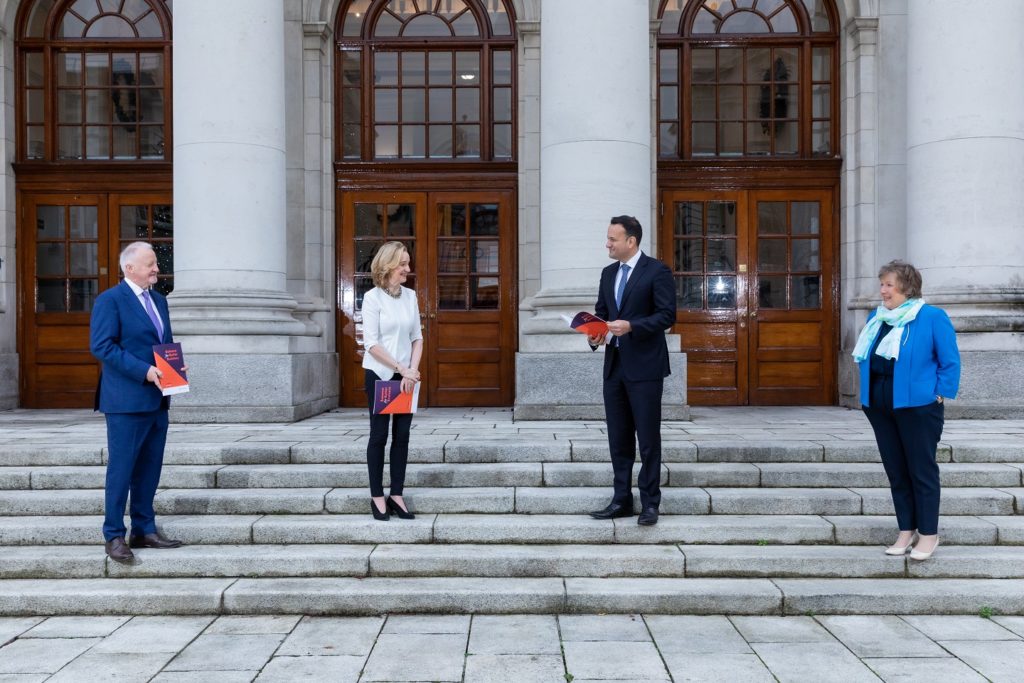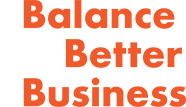
Gender Imbalance on Leadership Teams Persists Despite Progress on Boards Balance for Better Business Launches Third Report
16 Dec 20
Positives – Boards
- ISEQ 20 companies on average have achieved 2021 Board target of 27%
- Ireland’s ranking among EU-28 companies continues to improve, from 17th to 13th in the last two years
Negatives – Senior Leadership Teams
- Target for all listed companies to have at least one woman on Senior Leadership Team by end of 2020 will be missed; almost two in five (38%) listed companies still have no woman among senior leadership
- No women appointed to Executive Director roles in the 18 months to 1st September 2020
Dublin, Wednesday 16th December 2020 – Balance for Better Business today issued a call for Irish companies to urgently address the serious gender imbalance that persists among Senior Leadership Teams.
The latest analysis from the Government established initiative also reveals that while heartening progress is being made by some companies, the current low rate of new female Board appointments means Ireland will likely fail to meet the 2023 targets set out in previous reports. (1)
According to the latest report, which monitors progress to 1st September 2020, only 27% of all new Board appointments in the last year were female. This represents a significant reduction on the 50% rate recorded from March to September 2019. The problem is particularly acute at Executive Director level where 13 appointments were made without a single female appointment.
The third report from Balance for Better Business also sets targets for key executive roles in leading multinationals with significant operations in Ireland. The target for Senior Leadership roles in such companies has been set at 40% by the end of 2023 (currently 30%).
While the group is pleased to report some significant improvements on Boards of companies listed on Euronext Dublin, a small number of all-male Boards remain resistant to change. There were eight (2) listed companies with all-male Boards at 1st September 2020. Five of these companies appointed new directors, all of whom were male, which was a particularly disappointing refusal to take the opportunity for change.
Similarly, the target of all listed companies having at least one woman on their Senior Leadership Team by the end of 2020, again a critical first step, will be spectacularly missed. Almost two out of five (38%) listed companies still have no woman on their Senior Leadership Team.
As of 1st September 2020, 22.4% of listed company directors were female, compared to 19.1% a year earlier continuing the positive trend since this initiative was established in 2018 when just 14% of Board members were female. Currently, five listed company Boards have reached or exceeded the 40% balance target – AIB, CRH, Bank of Ireland, Ryanair and CPL – and should be commended for their efforts.
Commenting at the report launch, Tánaiste and Minister for Enterprise, Trade and Employment, Leo Varadkar TD, said: “This report shows that we have seen some progress in female participation on boards and leaderships teams, especially for ISEQ20 companies, where the average representation on boards is up from 18% in 2018 to over 27% now. However, clearly more needs to be done. There is still insufficient representation of women in Executive Director roles and the appointment rate of women to boards remains disappointing. By excluding women, businesses are ignoring the talent of half of the population. This cannot continue. Not only because it is wrong, but because more diverse leadership, yields better results. I launched Balance for Better Business in 2018 to eliminate this disparity and I look forward to the Group continuing to make strides in this area. I am pleased that this work has now moved under the auspices of my Department and I hope that this will help create stronger links with businesses, including through our enterprise agencies.”
Brid Horan, Co-Chair, Balance for Better Business, said: “At Balance for Better Business, we are pleased by the progress we have seen towards our voluntary targets. However, a number of all-male Boards continue to be stubbornly resistant to change, while the recent slowing in the rate of female Board appointments is also a concern. We are today also calling on Irish companies to urgently address the serious gender imbalance that persists among Senior Leadership Teams. Unless these issues are tackled, many companies will fall spectacularly short of these voluntary targets and more prescriptive steps may be needed to achieve balance, as has happened in several other countries.”
Gary Kennedy, Co-Chair, Balance for Better Business, said: “While COVID-19 challenges now facing enterprises may pose a risk to maintaining progress, we are even more convinced of the vital benefits to business of gender balanced leadership in achieving sustainable business success. As in all areas of society, gender equity and fairness in business are essential. The business case for gender balanced business leadership on Boards and in executive management is well proven and accepted. Benefits to business include improved financial performance, better response to customer needs, accessing the widest talent pool and improving both company culture and governance. Strong business leadership is essential if Ireland is to secure these benefits and drive our recovery.”
Boards
ISEQ 20 companies on average have already achieved the 2021 target of 27% and are also on track to meet the 2021 target for Senior Leadership Teams. However, the average masks mixed results including the fact that eight ISEQ 20 companies have not yet achieved the 2020 Board target.
Disappointingly, the group of other listed companies are generally much further behind, and many are unlikely to meet the 2020 targets for Boards or Senior Leadership Teams.
Three companies (Datalex plc, Malin Corporation plc and Petroneft Resources plc) appointed female directors for the first time during the year. At 1 September 2020 there were still eight companies with no women on the Board, including Applegreen plc (3) , a then ISEQ 20 constituent. Five of these companies appointed new directors, all of whom were male, a particularly disappointing refusal to take the opportunity for change.
Senior Leadership Teams
Progress on Senior Leadership teams is also led by ISEQ 20 companies, increasing from 16.9% to 22.2% and exceeding the 2020 target of 20%. The other listed companies are lagging at 15.9% against a target of 18% for 2020. Encouragingly, 59% of new appointments on ISEQ 20 Senior Leadership Teams were female but the rate was only 29% for other listed companies.
International Comparison
The focus on this issue in Ireland is having an impact with the gap between the proportion of women on leading company Boards in Ireland (represented by ISEQ 20) and the average in other EU-28 countries continuing to narrow. From 8.1 percentage points in 2018, the gap in November 2020 had reduced to 1.2 percentage points and our ranking improved from 17th to 13th.
Multinational companies.
A further extension to our work in this report which we signaled from our launch is the area of large multinational companies operating in Ireland. As analysis in this sector is constrained by the limited public availability of data, we collaborated with Ibec to conduct a survey of the leading companies.
The target for women in Senior Leadership roles in large multinational companies based in Ireland has been set at 40% by the end of 2023 (currently 30%) with interim targets of 33% by the end of 2021 and 36% by the end of 2022.
About Balance for Better Business
Balance for Better Business, which was launched by the then Taoiseach Leo Varadkar T.D. in July 2018, is tasked with examining the gender mix within the governance and senior management of companies in Ireland and the issues which arise in connection with the appointment of company directors and senior management.
Co-chaired by Brid Horan and Gary Kennedy, the Balance for Better Business Review Group is supported by the Department of Enterprise, Trade and Employment and comprises senior figures in Irish business and the public service: Carol Andrews (30% Club and BNY Mellon), Mark FitzGerald (Sherry FitzGerald), Aongus Hegarty (Dell), Danny McCoy (Ibec), Martin Shanahan (IDA), Julie Sinnamon (Enterprise Ireland), Fiona Tierney (eir) and Dr Orlaigh Quinn (Department of Enterprise, Trade and Employment). The Programme Director is Anne-Marie Taylor.
Ends
Footnotes
- Please see accompanying document for complete list of targets.
- In November, a female Non-Executive Director was appointed to the Board of Open Orphan.
- Uniphar plc has since replaced Applegreen plc on the ISEQ 20

